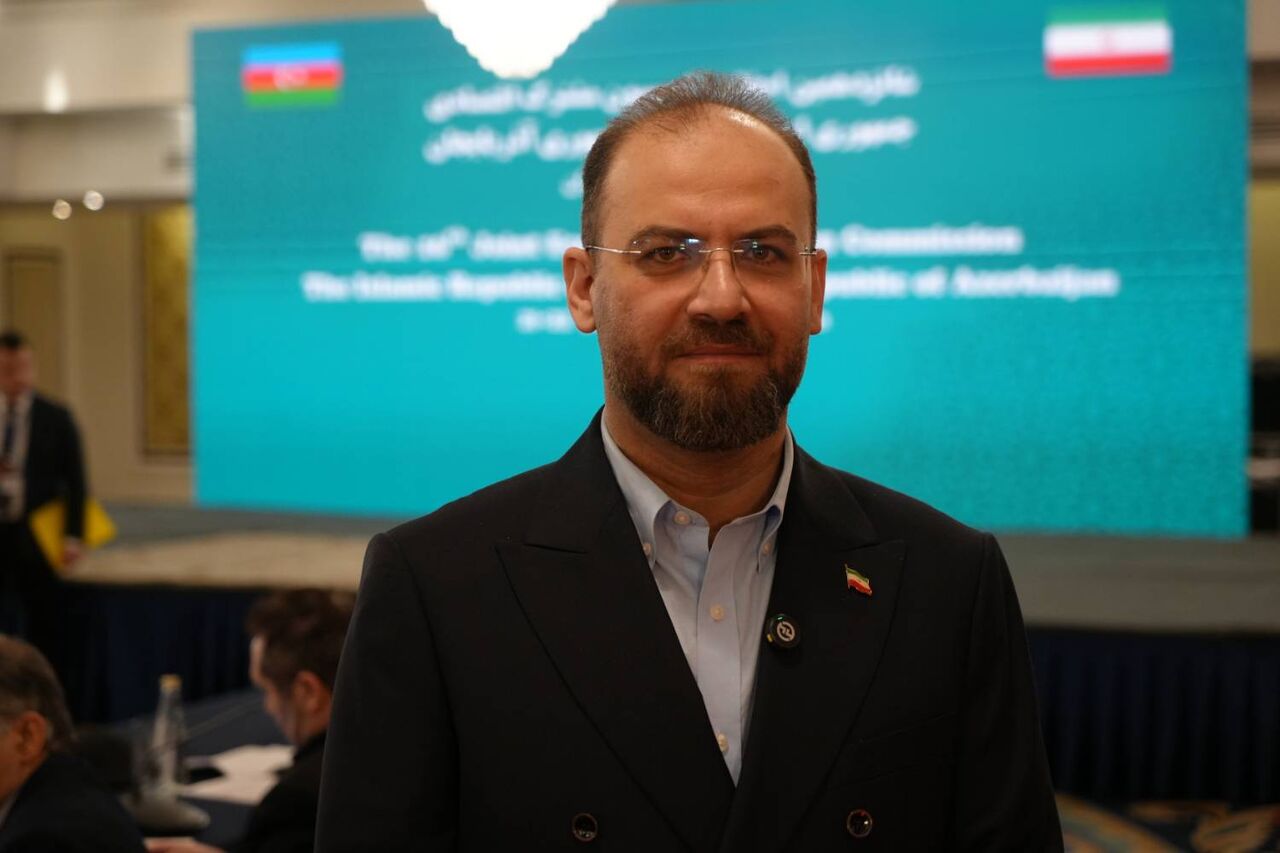BAKU, Azerbaijan, November 4. The construction of the Rasht-Astara railway in Gilan Province, located in northern Iran, as part of the North-South International Transport Corridor, is expected to be completed within four years, Director General of the Center for International Affairs of the Ministry of Roads and Urban Development of Iran Amin Taraffo told local media, Trend reports.
According to him, the construction of this railway is planned to begin in early 2026, and within this framework, a loan of 1.6 billion euro from Russia will be provided with its further repayment during 10 years and a three percent return.
Taraffo said that by that time, an agreement is planned to be signed between the entrepreneur and the contractor company to start the construction of the Rasht-Astara railway.
Currently, the text of the construction agreement has been approved by both parties, and the agreement contains additions on volumes, costs, etc. being discussed.
He added that at the transport meeting between Azerbaijan, Iran, and Russia held in Baku, an agreement was reached to transport 15 million tons of cargo per year along the western route of the North-South International Transport Corridor.
In general, it's possible to increase the cargo transportation along the western route of this corridor to 30 million tons per year using various means of transport.
The ministry official said that so far, the ownership of 85 kilometers of the 160-km Rasht-Astara railway has been purchased, and 35 kilometers have been handed over to the Russian side for research.
The remaining territory is planned to be purchased and handed over to the Russian side by the end of the year.
The official noted that the Rasht-Astara railway project has been in the spotlight since 2000 and the signing of the North-South International Transport Corridor agreement, and the most important step regarding the construction of this railway—the purchase of the ownership of the territory—was taken by the current Iranian government (the current Iranian government has been in power since August 2024).
Meanwhile, an intergovernmental agreement signed between Russia, Iran, and India on September 12, 2000, laid the foundation for the North-South Transport Corridor. In general, several countries have ratified the said agreement (Azerbaijan, Belarus, Bulgaria, India, Iran, Kazakhstan, Kyrgyzstan, Oman, Russia, Tajikistan, Türkiye, and Ukraine). The objective of establishing the corridor is to optimize the logistics timeline for the transit of goods originating from India to Russia, in addition to Northern and Western Europe. Currently, the lead time on the existing route exceeds six weeks; however, it is projected to be streamlined to three weeks through the “North-South” corridor.
The Qazvin-Rasht railroad, stretching 175 km, hit the ground running on March 6, 2019, linking Azerbaijan's railroads with Iran's railway network in the corridor. The Rasht-Astara railroad is to be built on Iranian territory.
The North-South Corridor encompasses three distinct vectors within the Iranian geopolitical landscape. The eastern vector encompasses Turkmenistan and the Central Asian republics; the central axis aligns with Russia and adjacent nations across the Caspian Sea, while the western trajectory includes Azerbaijan, Georgia, Russia, and various Eastern European states.
On May 17, 2023, an agreement was signed between Russia and Iran on the construction of the Rasht-Astara railroad in Gilan Province in northern Iran. Nine stations will be built on the Rasht-Astara railroad line, which is about 163 kilometers long. With the completion of this railroad, the North-South international corridor will be improved, and Iran's railroad network will be integrated with the Caucasus countries, Russia, and Northern European countries. Per the stipulations outlined in the contractual framework, the Russian entity is projected to allocate a financial outlay of 1.6 billion euros towards the infrastructural development of this railway system. The construction and finalization of this rail corridor is projected to occur within a 48-month timeline.
Stay up-to-date with more news on Trend News Agency's WhatsApp channel







